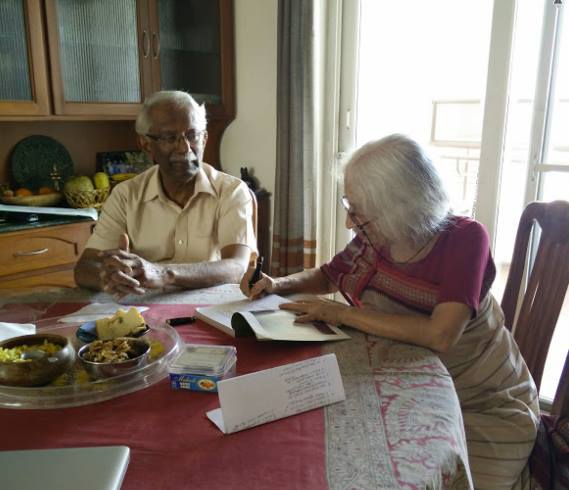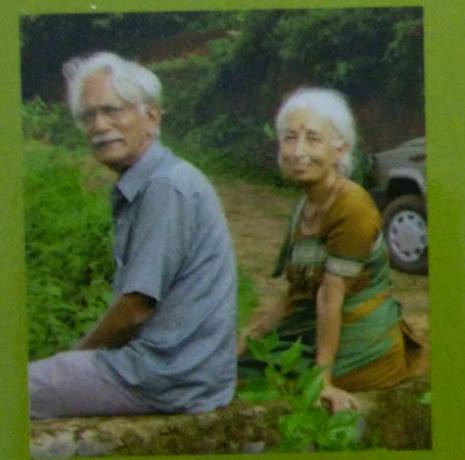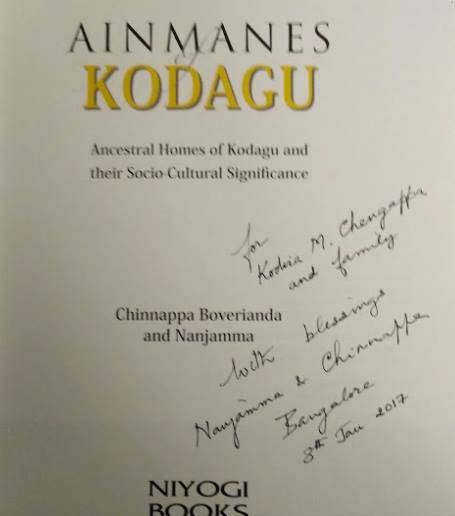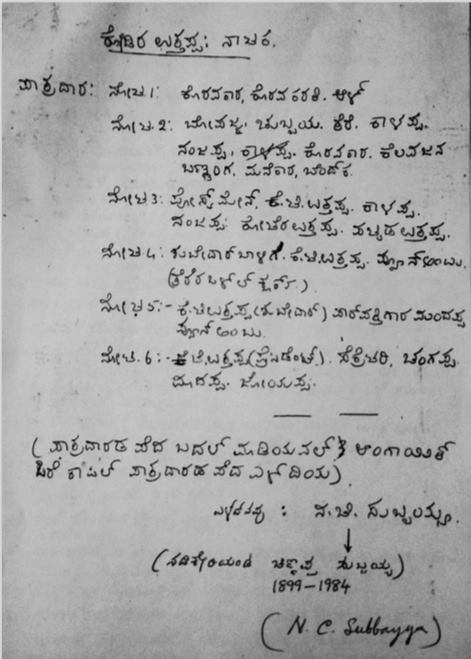Giving the Kodira Book to the authors of Pattole Palome

One of the most unexpected windfalls of Pappa publishing a book on our family has been the experiences I’ve had afterwards. I have been able to meet several very interesting people, both in my own family and outside it, and the experience has been more than worth the efforts we put in.
Last Sunday, I met Boveriyanda Nanjamma and Chinnappa. Ms. Nanjamma’s grandfather Nadikeriyanda Chinnappa, a police officer, was worried about the influence British customs were having on the Kodavas. He wanted to record our customs and traditions for posterity and so compiled a book on Kodava customs called the Pattole Palome in 1924. Chinnappa had begun translating the book but passed away before he could finish.

Ms. Nanjamma and her husband Boverianda Chinnappa (first cousins, both grandchildren of Nadikeriyanda Chinnappa), after retiring from their careers in Europe and Canada, decided to come back to India and complete the translation. When they finished that project in 2003, they immediately took on another: that of cataloging all the Ainmanes (clan homes) of the Kodava community. Imagine a couple, both more than 70 years old, travelling across the length and breadth of Coorg, trekking where vehicles cannot go, visiting all the clans in Coorg and recording our history. The information they collected was published as a book “Ainmanes of Kodagu”. They also created a website which they maintain with the help of a volunteer.
Ms. Nanjamma had heard of our book and had requested a copy. After Pappa sent her one, she called to thank him and to say she wanted to send him something in return. Pappa suggested I visit the couple in person and pick up what they wanted to give us. So, on a Sunday morning, after a brief conversation on the phone, I visited them at their home. The couple, both now in their 80s, are two of the liveliest people I’ve met. They have the energy & enthusiasm of a couple in their twenties and it was wonderful to watch them banter to and fro. Decades of togetherness mean one completes every sentence of the other (though aunty is probably twice as talkative). I was reminded so much of the fictional William and Phillippa in Jeffrey Archer’s ‘Old Love’ (from the book: A quiver full of arrows).
They showed me their study - filled wall-to-wall with books and their research. Aunty has begun using computers only recently (and reluctantly: seems her secretary at work forced her to learn after years of her refusing). I wanted to give them a digital copy of the book and as she asked her husband to plug the usb in, she said: “He’s the engineer and is good with such things”. She copied using keyboard shortcuts: something I’ve had trouble getting my peers to pick up.
Afterwards, over cups of coffee, we spoke about their work (“so much to do and so little time left to us”), why they gave up comfortable retired lives in Canada and returned to India (“it is home and there was work to be done”), their family and mine, a Kodava dictionary ( which they are helping compile in collaboration with the Mangalore University) and their research (which shows that Kodava is not a dialect as many of us think it is: it is an actual language, like Tamil, which broke off from a proto Dravidian language; and is even older than Malayalam). We spoke wistfully about Kodavas and our pride in martial achievements at the cost of ignoring other great people who’d contributed in literature and the arts.
I finally realised I had to leave and aunty gave me what I’d gone there to collect: a copy of a play written by her father, Nadikeriyanda Subbaiah, who was also an author and poet, about my grand-uncle Rao Bahadur K.T.Uthappa, a man famous in Coorg for his philanthropy, and a signed copy of their book. Was a good Sunday. I hope I’m as cool as them when I grow up.
A signed copy of Ainmanes

A play about Rao Bahadur K.T.Uthappa
